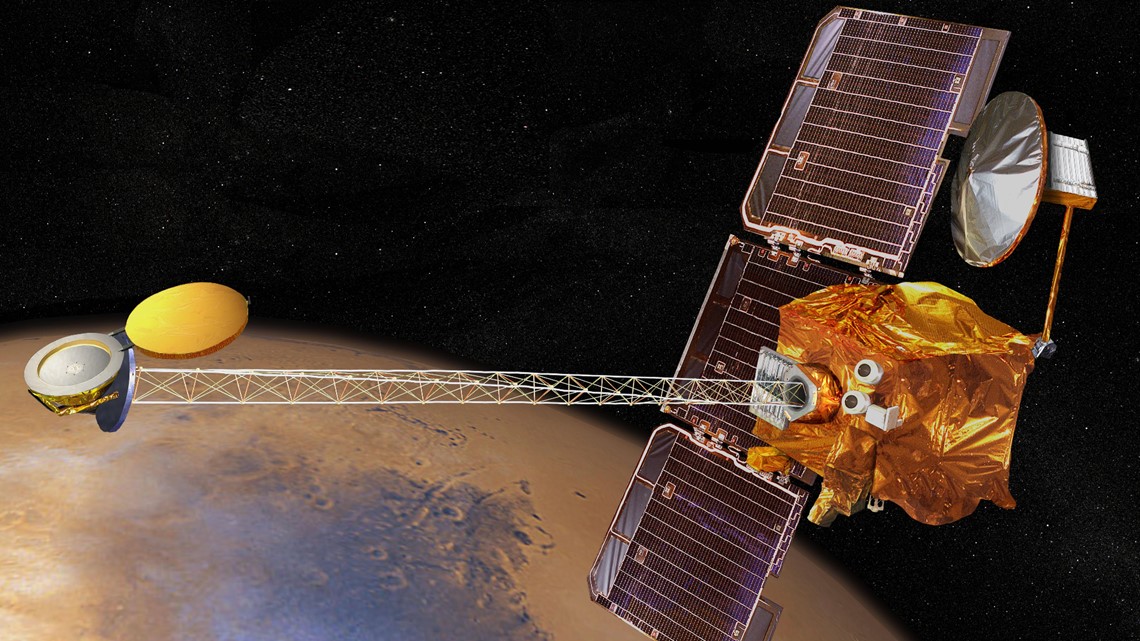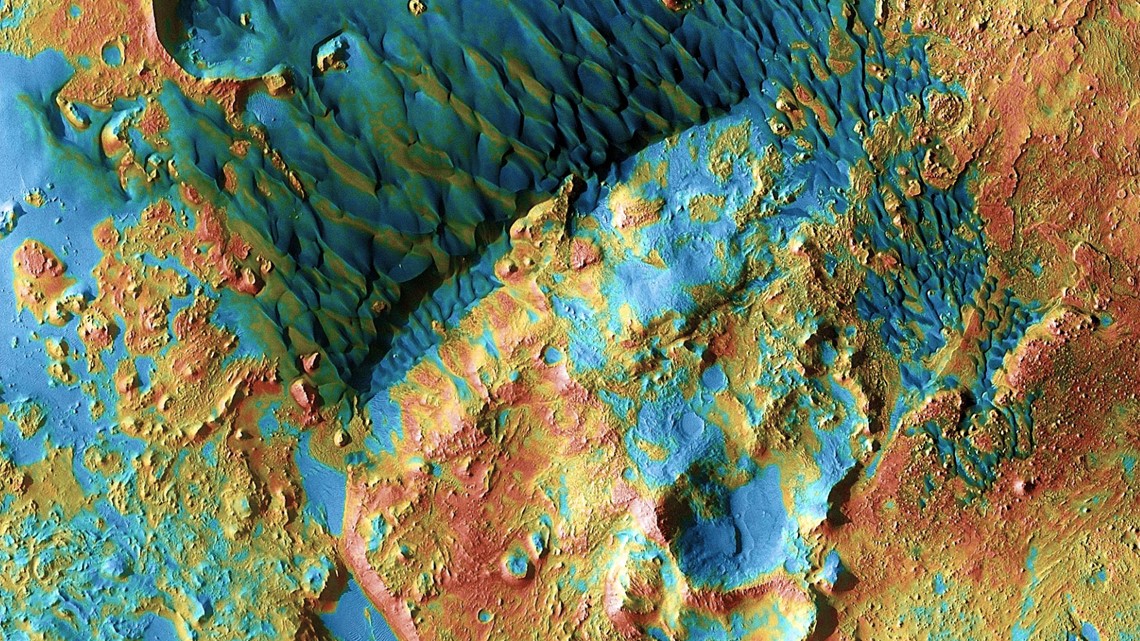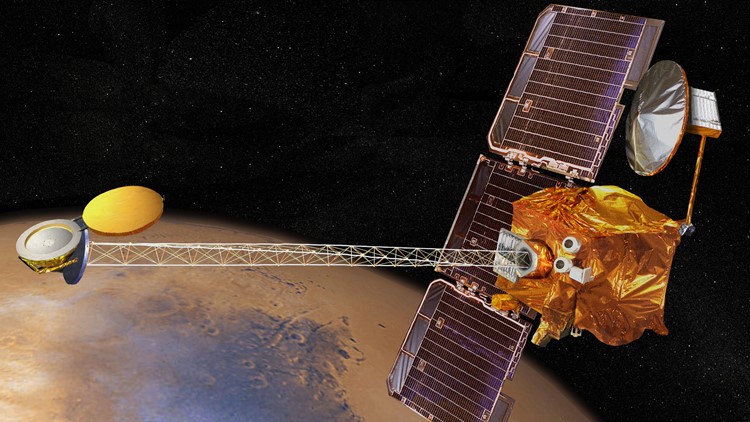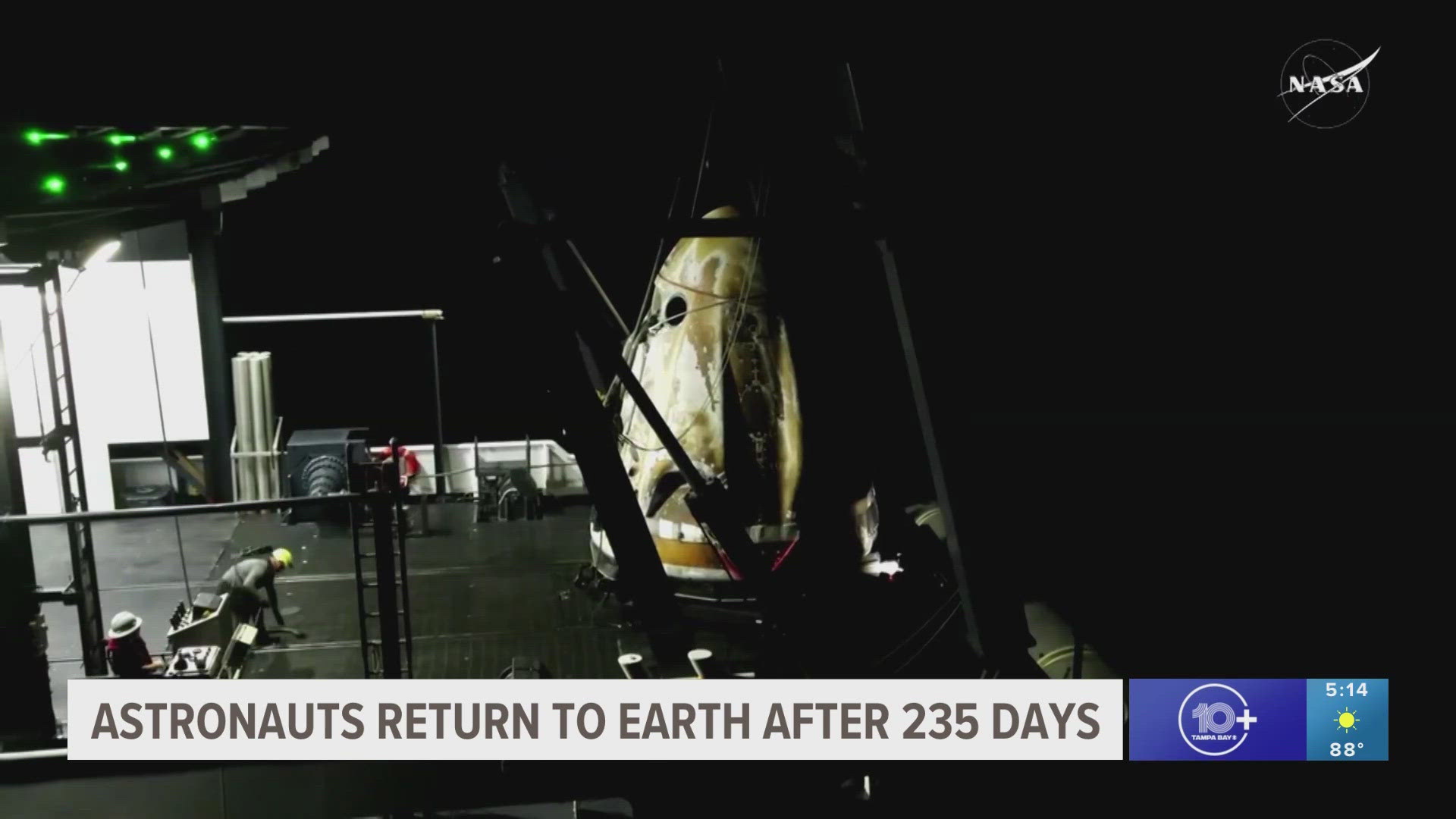The 2001 Mars Odyssey spacecraft has been orbiting the Red Planet for more than 18 years.
It’s the longest-running Mars mission for NASA and has beamed back invaluable data and images, including finding water ice beneath the surface and information on Martian weather.
But with President Trump’s proposed 2021 budget, the long-running mission could be essentially terminating due to lack of funding.
While the proposed budget boosts NASA’s funding to $25.2 billion, almost half of that money is for projects to get humans back to the Moon by 2024 and then onto Mars. Some productive Mars missions, however, face steep cuts that could effectively end the Odyssey mission.
According to The Planetary Society, the Mars Odyssey mission faces a 92 percent budget cut – giving it just $1 million to keep running. The organization said Odyssey needs $12.2 million to maintain operations.
While the proposed budget is still just a request requiring congressional approval, the cuts have scientists and space fans worried for the future.
The Planetary Society, headed by Bill Nye, said the cuts to the Odyssey program and the Mars Science Laboratory are surprising. In independent reviews of proposed mission extensions for three years, both proposals were rated “excellent” for their potential scientific return.
And, Odyssey is the primary communications connection for the Curiosity rover, which has been sending back stunning images of the Martian surface and crucial data while it searches for signs of life.
Odyssey team member Phil Christensen, speaking to Space.com, called Odyssey the “workhorse for sending data back from the rovers.”
Launching in April 2001 from Cape Canaveral, Fla., Odyssey began its orbit around Mars six months later. Within a year, it found water ice beneath the planet’s surface – the first direct evidence of underground water on Mars.
The orbiter is also the longest continuing observer of Martian weather. And, for the first time, the orbiter captured the moon Phobos during a full moon phase.
“The Planetary Society encourages Congress to restore these funds in order to maintain the scientific productivity and generate the highest possible return on investment for the U.S. taxpayer for both missions,” The Planetary Society said in a blog post.




- 14-year-old bicyclist hit and killed by Jeep in New Port Richey
- Tampa Bay attractions stay open amid coronavirus concerns
- Coronavirus concerns changing some practices in Bay area churches, synagogues
- Here's what airlines, cruise lines and public transit are doing to address COVID-19 concerns
- Virginia lawmakers pass bill capping monthly costs of insulin to $50
- 6 states vote Tuesday in crucial Democratic primaries
FREE 10NEWS APP:




